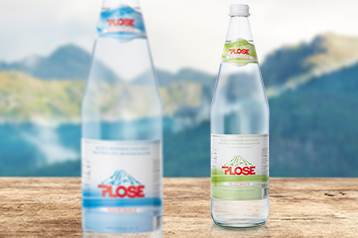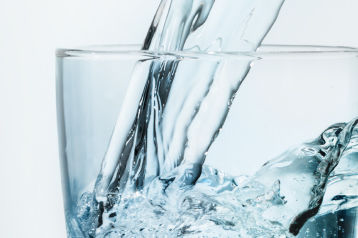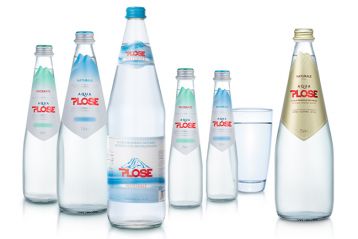Consegna a domicilio
Ricevi tutta la qualità Plose comodamente a casa tua contattando il tuo distributore di zona.
Scientific notions
THE SOURCE OF LIFE
Water is the ingredient our bodies need most and its role is crucial to our health and well-being. During one lifetime we will drink, on average, six hundred times our weight in water. Given this, it is easy to see how drinking polluted water can cause health problems. Drinking pure water instead engenders prosperity.
COMPOSITION
The chemical formula of water is H2O: two hydrogen atoms and one oxygen atom. But the fresh water on earth (in wells, rivers, springs, lakes, etc.) is not only composed of these two elements, it also contains bacteria, inorganic minerals, heavy metals, hydrocarbons, and other pollutants. This is due to the fact that the water, during its natural cycle, comes into contact with air, rocks, plants, animals, earth, electromagnetic waves, and a variety of other toxic substances. In the search for pure water we must consider all these factors, bearing in mind that the fewer undesirable substances that can found in water, the better is its quality.
Healthy water can only be spring water, untreated and potable as is: the chemical or physical extraction of pollutants does not actually completely purify water because the negative information of those components remain safely stored in it.

OUR BODY IS MADE OF WATER.
The human body is flooded with water from the smallest cell, which is composed mostly of water and exists in a watery environment, to the body in its entirety. The body of an adult person is made up of about 65% water, which is about 45 liters. We begin life with the highest proportion of water our bodies will ever have. An egg that has divided a few times after being fertilized is 90% water. From there we grow more tissues and structures and the proportion of water in our bodies decreases, but it still plays a critical role. An embryo is 85% water, a newborn is 75-80%, a forty-year-old is 60-70%, and a seventy-year-old is 50-55% water.
It is easy to understand the importance of water both in qualitative and quantitative terms to the functioning of a perfect human body. In his lifetime, a man drinks about 25,000 gallons of water for the maintenance of his biological functions and organs. All the organ systems are immersed in water: circulatory, urogenital, respiratory, digestive, and nervous and sensorial; each of them is, in its own way, water dependent. Tiny individual cells and massive tissues are all water-dependent.
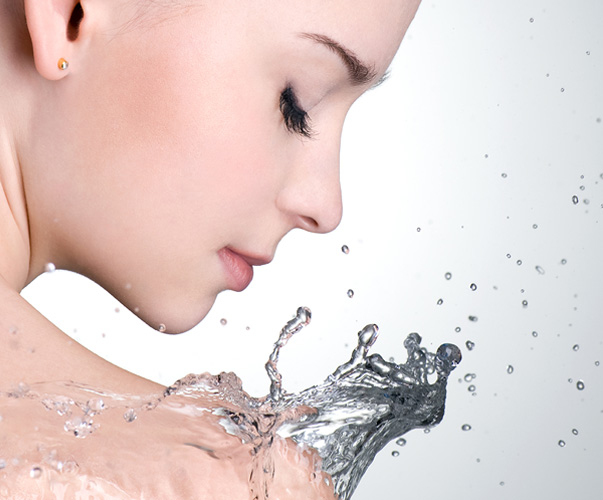
INTRACELLULAR WATER
The secrets of life are hidden in the water that maintains its structural order. The intracellular water is partly metabolic residue, partly coming from diffusion across the cell membrane. All nutrients are transported into the cell through this water, just as waste is expelled through the precious liquid. When cells lose water their functionality is slowed down. They become less mobile and they stiffen, which causes the organism to age. A healthy European adult will lose about 2.5 liters of water per day. The loss is the result of direct expulsion (1500 ml per day) and breathing (900 ml). These outputs are compensated by drinking (1300 ml), eating (900 ml), and as a byproduct of metabolic oxidation (300 ml).
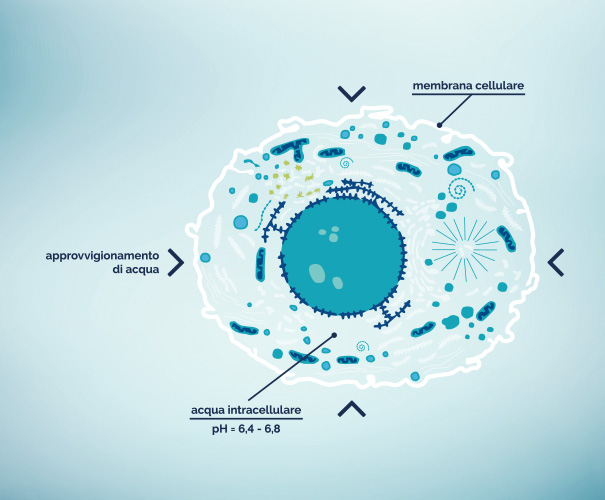
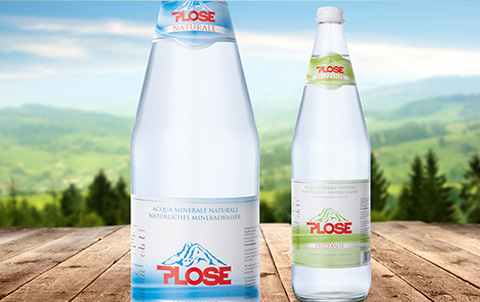
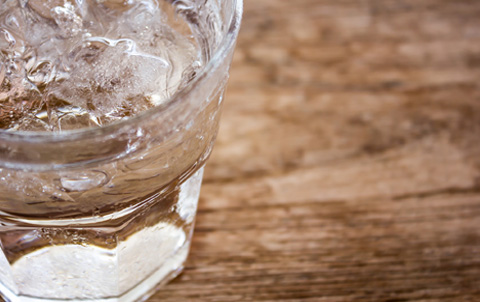

WATER REMOVES TOXINS FROM THE BODY
One of the most important functions of water is to expel toxic substances from the body such as waste and inorganic minerals. Only the least mineralized water with a low dry residue is able to help the body to expel these toxins easily. Pure water is also the best tonic for health and beauty: it stimulates the good preservation of the body’s cells and prevents their dehydration. This benefits the skin; the face and neck show fewer blemishes and wrinkles, keeping them young longer.
The inorganic minerals dissolved in water cannot usually be directly metabolized by human cells; they cannot be integrated into the body. The minerals that humans can most easily assimilate are those that have already been assimilated by plants and are in the form of organic mineral salts.
Therefore, water is not necessary to satisfy the body’s mineral requirements as these should come from a diet rich in fruit, vegetables, grains and seafood.
The inorganic minerals, unusable by human cells, can cause an electrolyte overload in the blood that must be eliminated by the kidney filtration. The constant filtration of electrolytes that cannot be assimilated disturbs the normal excretory function of the kidney cells. This means that contaminants remain in the blood, which can then precipitate in the bloodstream and in tissues, causing even more mineral deposits. Mineral deposits on cholesterol molecules and the irregular walls of blood vessels are called “calcifications” and “artheroscleric plaques,” respectively. These can also form in the heart and in blood vessels in the brain, and can lead to premature aging.

